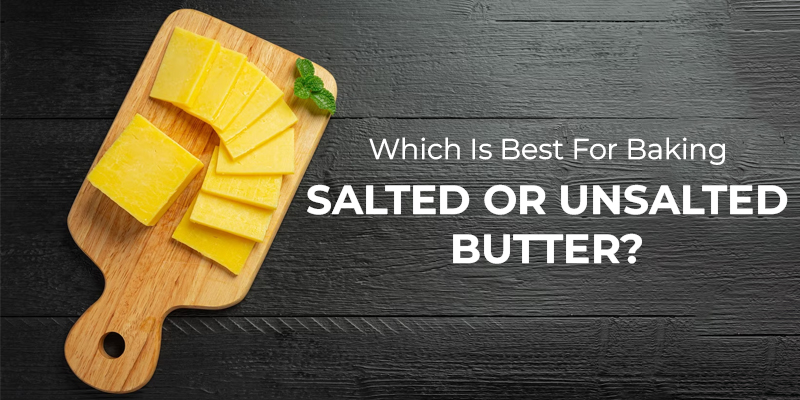Baking is an art, and choosing the right ingredients is crucial in baked products. So, it is undeniable that chosen ingredients can impact the final product and drastically change its texture and taste. One typical question among the bakers is whether to include salted or unsalted butter. It is because both types have their benefits and shortcomings. Hence, understanding the crucial distinction between them can help you achieve success in baking. In this blog, Zeroin Academy, one of the best cake classes in Chennai, has curated a complete guide on which is best for baking, salted or unsalted butter.
Composition Of Salted & Unsalted Butter:
Understanding their composition is crucial to comprehend the reasons for using salted and unsalted butter in baking. Salted butter typically includes approximately 1-2% salt per its weight, enhancing its taste and helping to preserve its freshness. At the same time, unsalted butter is obtained from cream without any salt addition. Hence, this difference in salted and unsalted butter is crucial in how it affects baked goods.
Controlling The Salt Level:
The major reason many bakers choose unsalted butter is their ability to control their recipes’ salt levels. Salt plays a crucial part in baking and is often considered a flavoring agent. Thus, unsalted butter gives bakers full control over the salt added to their creations. It is essential in delicate recipes where the balance of flavors is essential.
Consistency In Taste:
The next distinction between salted and unsalted butter is that sometimes salted butter can lead to inconsistent taste in baked goods. It is also to be noted that salted butter from various brands has salt content variations and can impact the baked product’s final taste. Therefore, unsalted butter is always preferred to ensure a consistent flavor in baking.
Avoiding Over-Salted Baked Goods:
Using salted butter in recipes that already call for salt can lead to over-salted baked goods, compromising the taste and potentially ruining the entire batch. To prevent such mishaps, professional bakers and baking classes in Velachery often rely on unsalted butter, allowing them to maintain precise control over the overall saltiness of their creations.
Freshness & Quality:
Unsalted butter is preferred in baking because of its high quality and freshness, as no preservatives are added. So, it is evident that bakers who wish to use fresh ingredients mostly choose unsalted butter.
Storage:
Salt is one of the best preservatives, and salted butter has a longer lifespan than unsalted butter. Hence, if you want to store your butter for an extended period, salted butter is your right choice.
For most baking endeavors, unsalted butter is preferred as it allows precise control over the salt level, ensuring consistency and superior taste. However, salted butter is right for dishes that need a savory component. As the best baking institute in Chennai, we understand the differences between these butter and help you make the right baking decisions.
